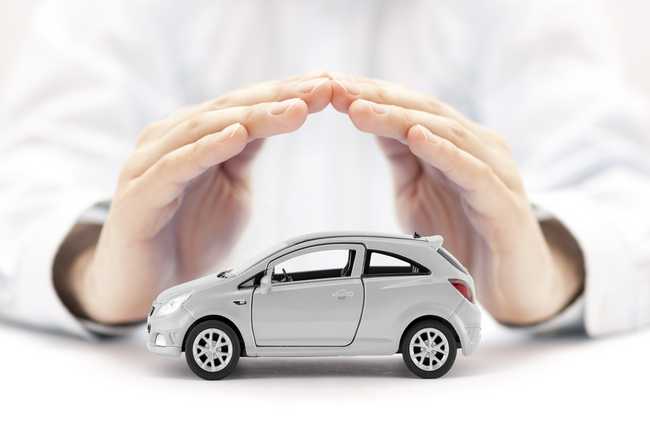There are over 1.32 billion cars in the world.
If you own one of these cars, making sure you have the right insurance should be your next priority. But you might be asking yourself, “Do I need comprehensive insurance?”
We’ve put together this guide to help you answer that question.
So let’s get started!
What Is Comprehensive Coverage?
Comprehensive coverage protects your car from almost everything outside of a normal car accident. If something happens to your car, you won’t have to pay for all the repairs yourself, which is a huge help for many vehicle owners.
So what exactly does it cover?
Here’s a more detailed look.
Weather damage
Weather is a powerful force, and it can cause all kinds of damage to your car.
Do you live in an area that gets a lot of hail? Tornados? Hurricanes?
This type of weather can do a lot of harm to your car. For example, a large ball of hail can crack or windshield or dent the roof of your car. A tornado can take your car for a ride around town. A hurricane can wash your car down the street.
If something like this happens to your car, comprehensive coverage will help take care of the cost of repairs.
Fires
There are a number of ways your car might catch on fire.
A fire might break out if something goes wrong inside your engine while driving. Hitting another car or object can lead to a fire. Or, in some cases, another person might vandalize your car and set it on fire themselves.
Comprehensive coverage ensures you can replace anything part of your car damaged in a fire.
Floods
If water gets into your car, it can ruin your engine and turn your upholstery into a soggy, moldy mess. You should never underestimate or overlook the reality of flood damage. In some cases, it can completely total your car.
Even if you don’t live in a high-risk flood area, having comprehensive coverage can save you a lot of money if you’re car is ever involved in a flood.
Windshield repairs
Hail isn’t the only thing that can damage your windshield. You might get hit with a rock as you’re driving down the street. Even a small piece of gravel can lead to expensive repairs if it hits your car with enough speed.
And you never want to drive around with a cracked windshield. Not only can it obscure your view and get you a ticket, but it can also leave you less protected in the event of an accident.
You always want to repair windshield damage right away, and comprehensive coverage saves you from paying for these repairs out of pocket.
Theft
Police can’t always track down stolen cars. So if your car gets stolen, there’s a big chance you’ll have to buy a new one. Comprehensive coverage will give you the Insured Declared Value of the car you lost, and you can use that money to go out and buy a new one for yourself.
Vandalism
Did someone break into your car and shatter the windows? Scratch or dent the side of your car? Slash your tires?
Comprehensive coverage takes care of any damages that are the result of vandalism.
Falling objects
A fallen tree branch can completely crush your car. Even if you don’t live near any trees, strong storm winds can blow heavy objects into your car, creating dents and sometimes more serious damage.
Comprehensive coverage means you don’t have to live with the worry of something out of your control damaging your car and being unable to do anything about it.
Animal collisions
If you hit an animal while driving, collision insurance won’t cover the cost of necessary repairs. And hitting large animals, such as dear, can cause some serious problems for your car.
Because of this, comprehensive coverage gives you extra protection every time you get on the road.
How Does Comprehensive Coverage Work?
When you get comprehensive coverage, one of the first things you have to do is pick a deductible. Many insurance companies will have several set deductible options, and all you have to do is pick the one that best fits your budget.
Here’s how it works.
Let’s say you pick a deductible of $1,000. (This is just an example. Your deductible might be lower or higher.) Now let’s say you have a windshield repair that costs $2,000. Since your deductible is $1,000, you’ll pay $1,000 yourself, and your insurance company will cover the rest.
If the cost of the necessary repairs is lower than you deductible, such as $800, you’ll have to pay the entire amount yourself.
Getting a higher deductible means you’ll have to pay more out of pocket if something happens to your car. However, higher deductibles also give you better monthly premiums, which might help you save money at the end of the year.
If You Have Comprehensive Coverage, Do You Need Collision Coverage?
The short answer to this question is yes.
Comprehensive coverage isn’t supposed to take the place of collision coverage. Instead, it gives you extra protection from other risks, both on and off the road. Here are a few more reasons you should always have comprehensive coverage and collision coverage.
They don’t cover the same things
Comprehensive coverage doesn’t give you any type of protection from car crashes or other types of accidents. That’s what collision coverage is for.
Collision insurance covers collisions with:
- Other vehicles
- Objects
- Single-car accidents
If you don’t have collision coverage and you get into a car accident, you’ll have to pay for all the repairs yourself. And it’s important to remember that collision coverage doesn’t pay for your medical expenses after an accident.
You might be required to have both
If you are leasing your car or financing it, your lender may require you to have both comprehensive coverage and collision coverage. In fact, depending on your circumstances, you may not be able to get comprehensive coverage if you don’t have collision coverage.
Is Comprehensive Coverage Worth It?
In most cases, yes, comprehensive coverage is worth the investment. However, it might not make sense to get this insurance if your car is old or already in poor condition.
Here’s a quick math problem that’ll help you find out if comprehensive coverage is worth it for you.
Start by finding out the value of your car. Then take your deductible and subtract it from that number. After you’ve done that, subtract the comprehensive coverage for the policy period.
If the number you’re left with is positive, it’s likely worth getting comprehensive coverage, especially if that number is big. If you’re left with a negative number, you’re going to end up paying more for this insurance than it’s worth for your car.
That said, in most cases, having comprehensive coverage is both a good idea and a worthwhile investment.
Signs You Should Invest In Comprehensive Coverage
Still not sure if comprehensive coverage makes sense for you? Here are a few sings you should get this type of insurance. If you find yourself on this list, you should talk to your insurance provider as soon as possible.
Money is tight
If something happens to your car, such as weather damage or theft, will you be able to pay for the necessary repairs (and potentially a new car) on your own? Owners with tight budgets may not be able to come up with the money they need should something happen.
Comprehensive coverage will be able to pay for these expenses for you, which can be easier on your budget.
Your car is new
Do you have a new car? You’ll most likely want to extra protection that comprehensive coverage provides. Otherwise, you could end up paying for expensive repairs yourself after already spending a lot of money to buy the car in the first place.
It’s also a good idea to have comprehensive coverage if your car is still in good condition. This will help ensure it stays that way for years to come.
You live in a high-risk area
Comprehensive coverage should be a priority for you if you live in a high-risk area. For example, if you live somewhere that gets a lot of flooding, tornadoes, hail, or other bad weather, the change of these things damaging your car is higher than normal. In this case, it makes sense to have comprehensive coverage.
Do I Need Comprehensive Insurance?
“So do I need comprehensive insurance?”
In most cases, the answer to this question is yes. The only time you might not want to get comprehensive coverage is if your car is old and in bad condition. At this point, you should probably just go ahead and buy a new car altogether.
Not sure where to get comprehensive coverage?
We can help! Make sure you click here to compare different providers.



